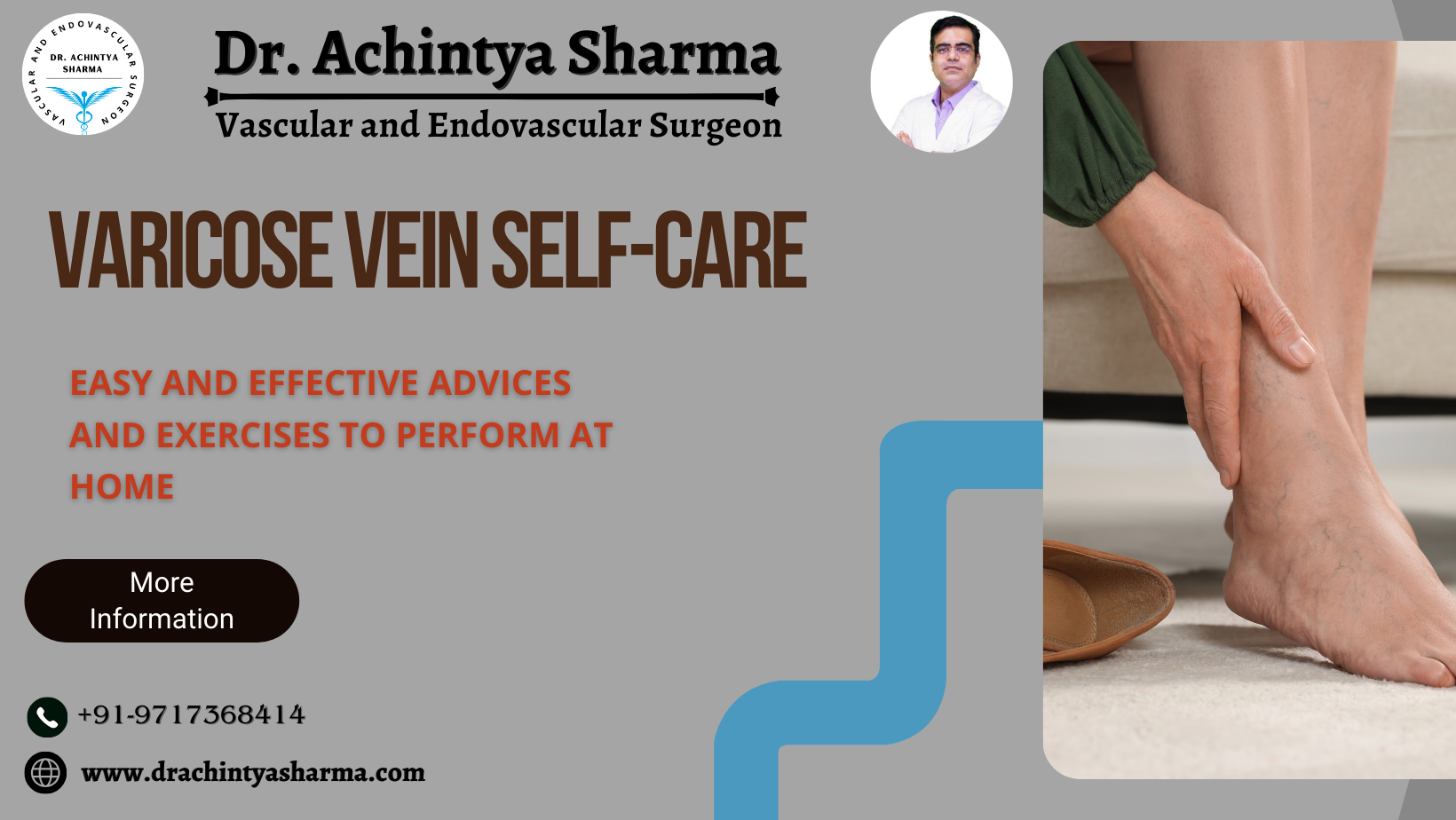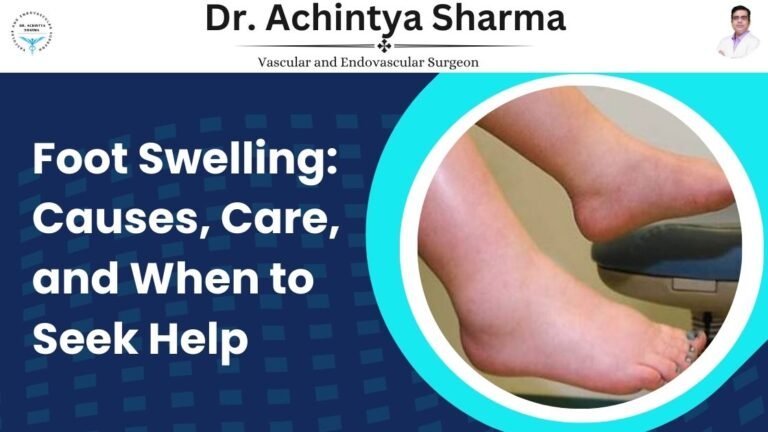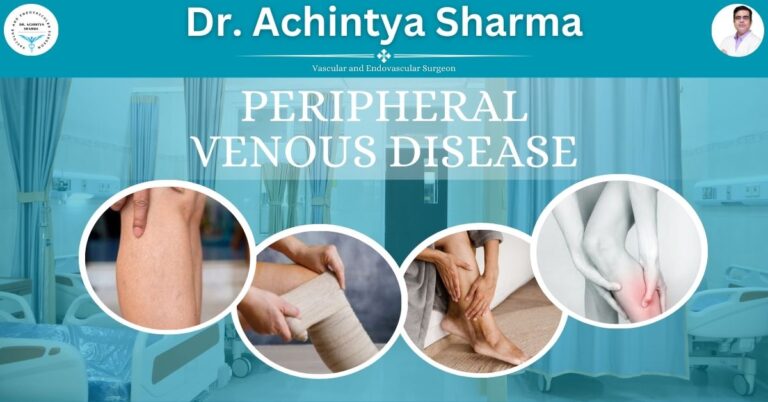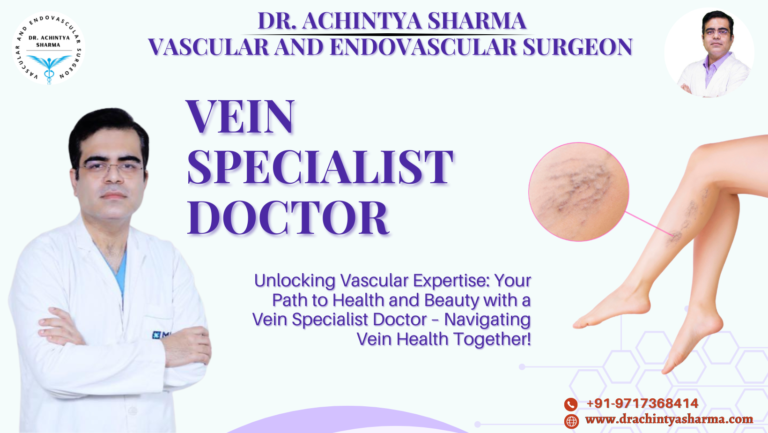Varicose veins are enlarged, twisted veins that often appear on the legs and can cause discomfort or pain. They are not just ugly veins. In addition to pain and suffering, they may lead to more serious health issues if ignored. While seeking professional medical advice is essential for a comprehensive treatment plan, incorporating Varicose veins self-care practices can alleviate symptoms and promote overall leg health. Self-care routines can dramatically enhance your general well-being daily, even in circumstances where medical treatments are available This article will discuss practical self-care methods for providing you with the knowledge and skills to manage your vascular health.
How varicose veins are diagnosed before moving on to varicose veins self-care advice.
These veins bulge and twist because weak valves enable blood to accumulate inside of them. A wide range of circumstances, including age, gender, genetics, and lifestyle decisions may influence their growth. An integral component of varicose vein self-care is regular physical exercise. The risk of blood clotting in the veins is reduced by increased blood circulation caused by physical activity. The following are lifestyle and home remedies for varicose veins:
1. Regular Exercise:
Engaging in regular physical activity is fundamental for managing varicose veins. Exercises that promote leg movement, such as walking, swimming, and cycling, enhance blood circulation, preventing blood from pooling in the veins. Additionally, these activities strengthen the calf muscles, which play a vital role in supporting healthy venous blood flow. Simple leg exercises like ankle circles and leg lifts can also be beneficial.
2. Avoid Prolonged Sitting or Standing:
Extended periods of sitting or standing can play a role in the onset and progression of varicose veins. Individuals with occupations that involve extended periods of sitting or standing should take breaks to stretch and move their legs. When sitting, avoid crossing your legs and, if possible, elevate your legs periodically to reduce pressure on the veins.
3. Compression Stockings:
Compression stockings are a valuable tool in the arsenal for varicose veins self-care. These specially designed stockings provide graduated compression, applying more pressure at the ankle and gradually decreasing towards the thigh. This compression helps improve blood circulation, reduce swelling, and alleviate symptoms associated with varicose veins.
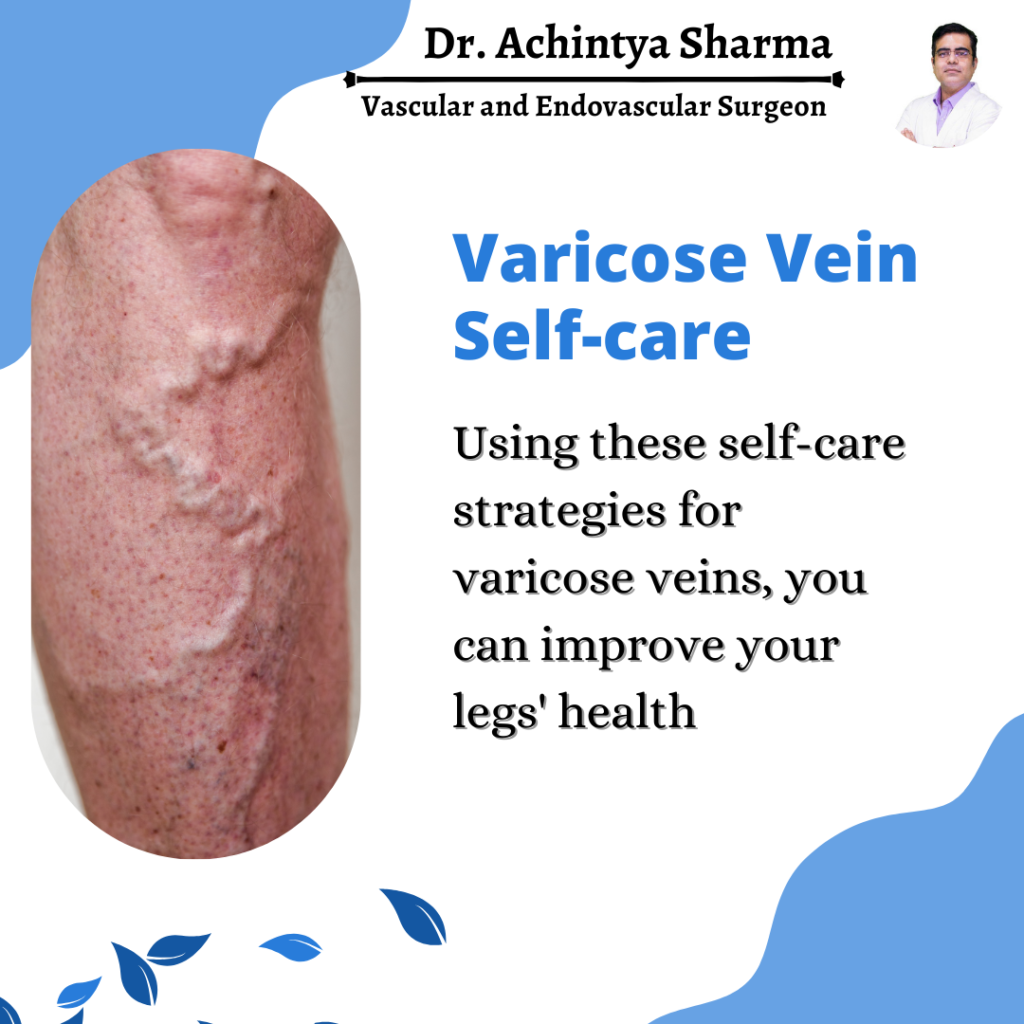
4. Healthy Weight Management:
Managing varicose veins is significantly impacted by the maintenance of a healthy weight. Excess weight puts additional pressure on the veins, making it harder for blood to circulate properly. Adopting a balanced diet and engaging in regular physical activity can contribute to weight management and reduce the strain on the venous system.
5. Elevation of Legs:
Elevating the legs is a simple yet effective way to alleviate symptoms of varicose veins. When resting or sleeping, elevate your legs above heart level to encourage blood flow back towards the heart. This reduces the pooling of blood in the veins and can relieve discomfort and swelling.
6. Dietary Considerations:
Nutrition plays a role in supporting vascular health. A diet rich in fiber helps prevent constipation, which can contribute to increased pressure on veins. Foods high in antioxidants, such as fruits and vegetables, and those containing flavonoids, like citrus fruits and berries, promote overall cardiovascular health. Staying adequately hydrated is also important for maintaining optimal blood circulation.
7. Leg Skincare:
Proper skin care can contribute to the well-being of varicose veins. Moisturizing the skin helps prevent dryness and itching, common symptoms associated with varicose veins. Avoiding hot baths and showers can also be beneficial, as excessive heat can dilate the veins and worsen symptoms.
8. Clothing Choices:
Wearing loose-fitting clothing can help promote healthy blood circulation. Tight clothing, especially around the waist and legs, may restrict blood flow and exacerbate varicose vein symptoms. Additionally, choosing comfortable shoes with low heels can reduce strain on the legs.
Conclusion:
While self-care practices are beneficial, it’s crucial to consult with a healthcare professional for personalized advice. Varicose veins are a medical condition, and a comprehensive approach that combines Varicose veins self-care with professional guidance ensures the best outcomes for individuals seeking relief from symptoms and improvement in leg health. You can lead a more contented and active existence by incorporating these simple suggestions into your everyday activities. Remember to get advice tailored to your particular circumstances by speaking with your healthcare provider. You can guarantee a healthier and more satisfying future by taking care of yourself now. They can assess the severity of varicose veins, identify any underlying issues, and recommend additional treatments such as medical procedures or interventions if necessary.

